#Jobs
Toyota, Stellantis Announce North American Battery Plants
Automakers Toyota and Stellantis separately announced plans to construct lithium-ion battery plants in North America on Monday. With regulatory pressures mounting, the industry has been shifting its eggs between baskets to avoid trouble. But the ultimate goal for most brands is to transition toward selling EVs, requiring meaningful action and financial expenditures on the part of manufacturers.
We’ve already seen General Motors and Ford Motor Co. squabbling over who will nestle the biggest battery facilities between America’s Frost and Sun Belts. It’s only fitting that the remnants of the Chrysler Corporation contained in Stellantis walk the path of electrification, especially now that it’s absolutely riddled with European influence. Meanwhile, Toyota is predictably exercising a bit of caution as it similarly navigates how to modernize itself via upcoming lithium-ion plants.
Dual Realities: VW CEO Claims Slow EV Shift Could Cost 30,000 Jobs
Like the rest of the world, the automotive industry is currently living in two distinct realities. Labor unions and part suppliers have been sounding the alarm that electric vehicles will require far fewer hands to manufacture and will ultimately lead to their demise. But battery firms, establishment politicians, and most automakers have claimed that transitioning to EVs is entirely necessary and will result in there being a surge of high-paying jobs to replace those lost.
Then there are claims you can’t quite wrap your head around, like the one Volkswagen CEO Herbert Diess reportedly made to the supervisory board in September. The Diess Man asserted that VW would lose 30,000 jobs if it transitioned too slowly to electrics, framing the situation around Tesla arriving in Germany and fresh competition from Chinese manufacturers. While it’s certainly possible that VW could take a hit as its rivals move on Europe, the premise that it’s going to cost the business jobs is sort of bewildering when just about every analyst agrees that electrification will result in a leaner workforce across the board.
Lordstown Motors Appoints New CEO
Lordstown Motors has entered into the phase where an EV startup has to tread water now that everyone knows it failed to disclose various production hurdles and shared inaccurate information about the pre-orders it has been bragging about. The only thing offsetting this bad situation is that our misgivings regarding Lordstown could probably be a little worse. Nikola and Faraday Future told some real whoppers, while the Ohio-based company appeared to have at least one toe dipped in the waters of truth. But we can’t exactly call lying a little less than the competition a major triumph.
It remains a bad situation, particularly because Lordstown lost CEO Steve Burns almost immediately after stating the company was “highly dependent” on his leadership in June. However, the firm said it had remedied the situation by appointing Daniel Ninivaggi as the new chief executive on Friday.
Report: GM Needs More Manpower, UAW Suggests It Stop Drug Testing
Flint Truck Assembly is the only standing reminder of General Motors’ formerly impressive commitment to Genesee County, Michigan. Other representations include a myriad of crumbling factories that were closed decades ago and the area’s preponderance of vintage, high-mileage Buicks retained out of utility after the employment situation turned sour. Saying that the region has fallen upon hard times would be a grotesque understatement.
But that doesn’t mean there still aren’t still automotive jobs to be had. Despite GM reducing its Flint workforce from roughly 80,000 in the mid-1970s to fewer than 10,000 in 2010, the truck plant is still operational and reportedly looking for 450 temp workers to help fill in scheduling gaps for the 5,100 union-represented staffers it currently employs. Unfortunately, it’s been having trouble finding enough bodies, though the UAW has a solution. It believes that General Motors should stop drug testing, especially now that Michigan has legalized recreational marijuana use.
QOTD: Will Foxconn Make Fisker's PEARs?
Foxconn, also known as Hon Hai Technology Group, announced that it signed a development and manufacturing agreement with Fisker. Foxconn is one of the world’s largest electronics manufacturers and the producer of Apple’s iPhone.
Summer Gas Shortage Likely for Dumbest Reason
As if you needed more doom and gloom to kick off this week, the National Tank Truck Carriers (NTTC) lobby has confessed that its fleet will go into the next few months operating well below capacity. That means there’s a very good chance that some parts of the country could see gas shortages over the summer. While we’re praying that this doesn’t come with with the deluge of less-than-desirable automobiles that followed the infamous 1973 oil crisis, a similar spike in fuel price is likely as gasoline becomes sporadically difficult to find.
With the United States technically still energy independent, the culprit is not a foreign oil embargo but our own inability to plan ahead. North America was already operating with a deficit of qualified tanker drivers ahead of the pandemic. Lockdowns suppressed demand as everyone was forced to remain immobile, suppressing demand that ultimately encouraged widespread layoffs and early retirement. Now there aren’t enough drivers as demand stabilizes.
UAW Annoyed With GM's Mexican EVs
General Motors has decided its fifth electric vehicle facility should be in Mexico and has set aside $1 billion for its complex in Ramos Arizpe, Coahuila, Mexico. While a portion of the funds will go toward a new paint shop, the manufacturer also said the money would be used to prepare the site for EV and battery production, angering the United Auto Workers (UAW).
“This is a slap in the face for not only UAW members and their families,” stated UAW Vice President Terry Dittes. “General Motors automobiles made in Mexico are sold in the United States and should be made right here, employing American workers.”
Auto Suppliers Just Realized EVs Will Cost Them Jobs
The Motor & Equipment Manufacturers Association (MEMA) has informed a Senate Commerce subcommittee on transportation that the Biden Administration’s penchant for electric vehicles is starting to get under its skin. The union is recommending that the United States avoid setting any timeline for the proposed banning of internal combustion vehicles because it might cost a staggering number of jobs.
Ann Wilson, MEMA’s senior vice president of government affairs, said vehicle restrictions were unrealistic before 2040 and would obliterate entire segments of the auto industry without providing concrete assurances that the environment would be improved. While the latter claim can be argued endlessly, the former is pretty difficult to refute.
Semiconductor Shortage Delays More Automobiles
The industry is having to stall more plants to contend with the semiconductor shortage that’s currently making it more difficult for you to get everything from a smartphone on up to your next vehicle. Ford Motor Co. recently informed employees that its Dearborn truck plant (easily one of its most profitable facilities) would need to be idled through the weekend to create a buffer for semiconductor chips. Worse yet, it’s not the first time the automaker has had to stall output of the F-150 this year. Ford has also started manufacturing trucks without all the necessary components, stating it would hold vehicles for a few weeks to account for supply chain delays.
Meanwhile, Chrysler has made a similar announcement about its minivan output as Windsor Assembly faces another chip deficit. Unifor Local 444 recently stated that the facility would be staring down the barrel of a four-week shutdown starting next week. Considering Chrysler’s minivans literally just dealt with a three-week stall over the chip shortage, union workers are understandably upset. Days earlier, General Motors Canada also announced that its CAMI plant in Ingersoll, Ontario, will likely remain idle until the middle of April.
Family Man: VW's Chief Strategy Officer Abandons Ship for Smart Boats
Volkswagen’s strategy chief since 2015, Michael Jost (59), has announced that he will be departing after more than a decade with the company. While the cynics among us will undoubtedly jump to conclusions about the botched launches of VW Group’s new EVs and the all-important Mk8 Golf, the man himself claimed that his primary reason for leaving is to ensure the wellbeing of his family.
Jost confessed via his website that he’s only been spending weekends with his kindred since 1996 and would ideally like to make that a full-time position. A year under COVID restrictions apparently made the man reassess his life, resulting in his decision to abandon his demanding role at VW.
Stellantis Laying Off 150 Jeep Employees in Illinois
Jeep is laying off 150 workers that would have otherwise been employed at its Belvidere Assembly Plant, which actually produces the Jeep Cherokee instead of the long defunct, full-size Plymouth. Based on the timing, this decision appears to have something to do with the FCA-PSA Group merger that formed Stellantis.
Ferrari CEO Abruptly Retires
Ferrari CEO Louis Camilleri has abruptly resigned from the company with the official announcement providing few details to build upon. Despite numerous news outlets fixating on his testing positive for COVID-19 and subsequent hospitalization, Ferrari failed to mention it in the release. But Reuters had reported that an inside source had claimed Camilleri, 65, had suffered health complications that required him to be hospitalized for weeks, adding that he was also stepping down as executive chairman of Philip Morris International.
However, he’s now said to be recovering at home and the coronavirus diagnosis apparently had nothing to do with his decision to retire. Ferrari only cited “personal reasons” and stated it had already begun considering his replacement, noting that it had no intention of rushing the process.
Salaried Ford Employees to Work Remotely Through June
With so many individuals still working remotely to combat The Dreaded Coronavirus™ from spreading, there have to be thousands of pools on when employees will finally be allowed to return to their cobweb-filled offices. But they have to be getting pretty boring because its hard to imagine anybody confidently putting their money down on late 2021 when this whole thing started in February and the press still thought it wouldn’t be a big deal. The narrative has definitely changed since then and continued social distancing has become a popular solution among businesses, even as state-sanctioned lockdown protocols decline after a few were ruled to be unconstitutional.
On Thursday, Ford decided to keep most of its salaried employees at home until at least June of 2021. That’s eight more months of not going into the office and matches the timetable General Motors issued a few weeks ago.
Communication Breakdown: Tesla Dissolved U.S. Media Relations Team
Tesla Inc. has reportedly disbanded its U.S. media relations team in the United States, fitting since the only journalists that seem to have any direct contact with the company suffer from a condition where they unquestionably praise its products and business model. While access journalism appears to be on the rise in all industries, the automotive realm was relatively free of the phenomenon until fairly recently. Now its getting to a point where just finding someone in the PR department to respond to you within 48 hours is a minor miracle — and it makes little difference whether you’re one of the big boys or a smaller outfit, like ours.
While Tesla used to be wildly proactive in reaching out to authors, sometimes just to complain about articles, it’s been enacting radio silence for quite some time. Other automakers will at least provide you with a boilerplate corporate response — assuming they haven’t issued one already. But it has been complete static from Tesla for what feels like years, leaving the firm little reason to continue paying people whose sole responsibility was to totally ignore the media.
Ford to Cut 1,400 Salaried Positions in U.S. Through Buyout Initiative
Barely a full day after news broke that Ford was on the cusp of announcing layoffs, Ford announced those layoffs. On Wednesday, the automaker informed employees that it needs to eliminate 1,400 salaried jobs as part of its $11-billion restructuring program. The good news is that these cuts will be handled through retirement buyouts that won’t leave the departing workforce empty handed. The automaker’s internal memo also stated that the buyouts would be voluntary.
The Blue Oval previously said it expects a full-year loss in 2020 thanks to the pandemic, with a pre-tax profit of anywhere between $500 million and $1.5 billion in the third quarter.



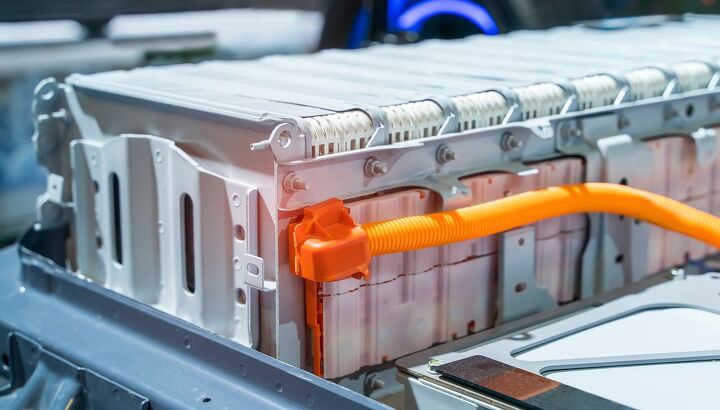

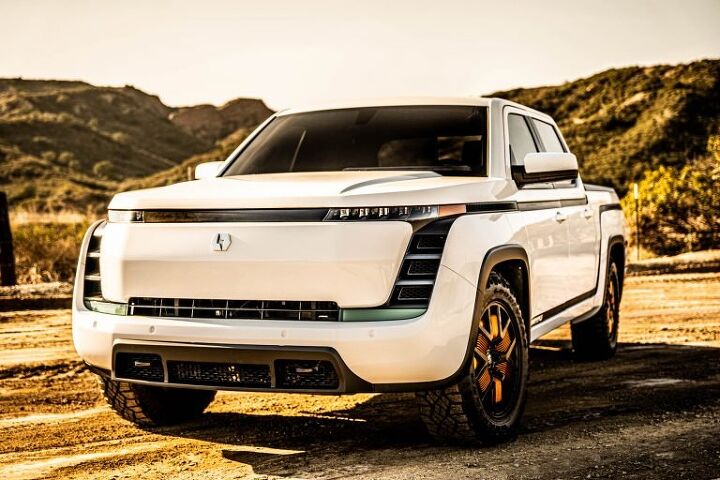
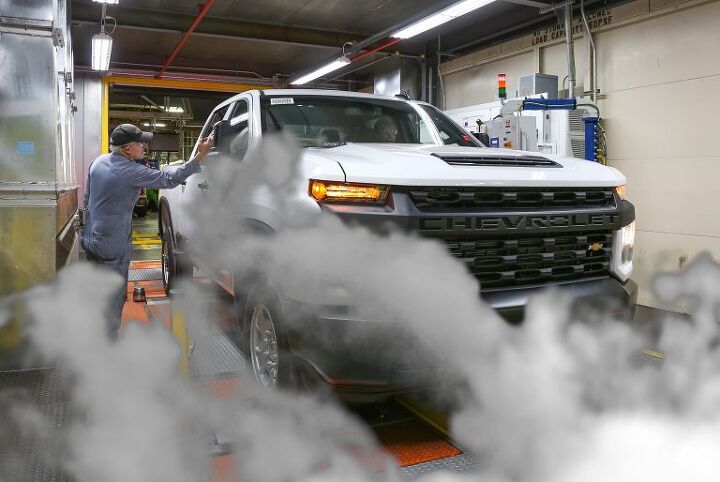



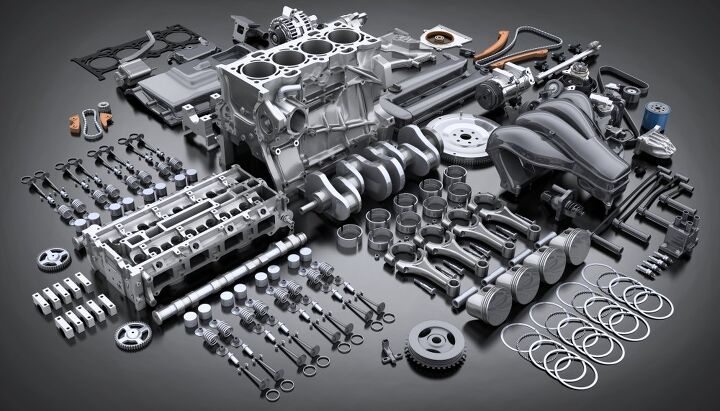
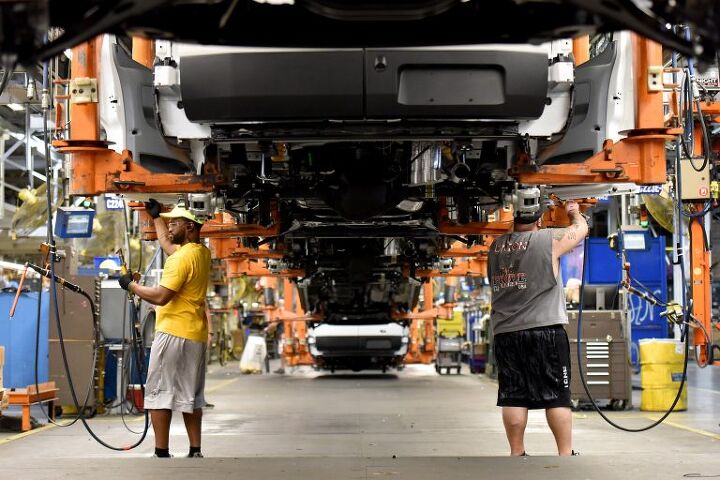

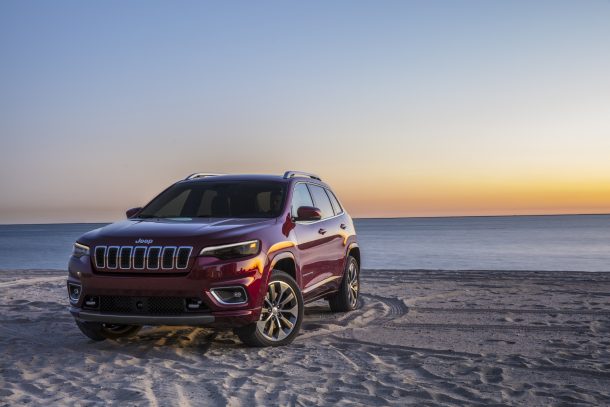
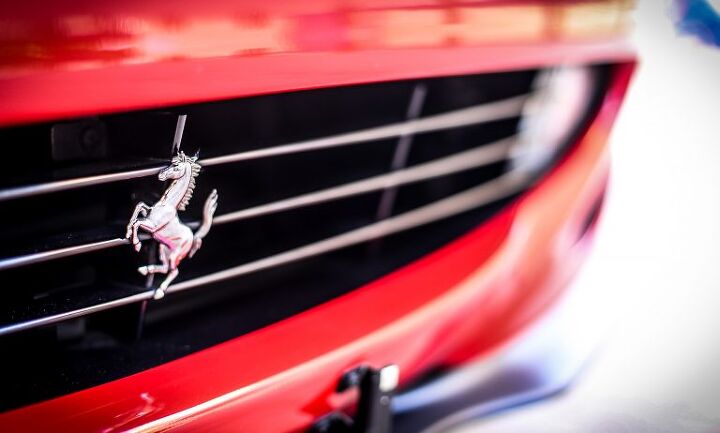














Recent Comments